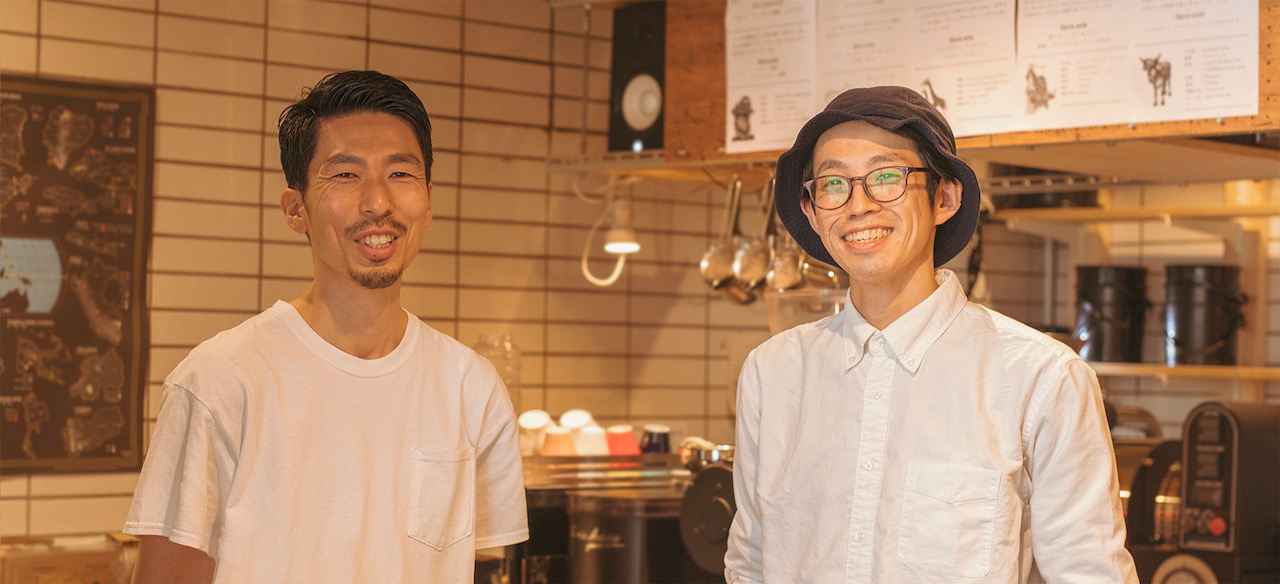
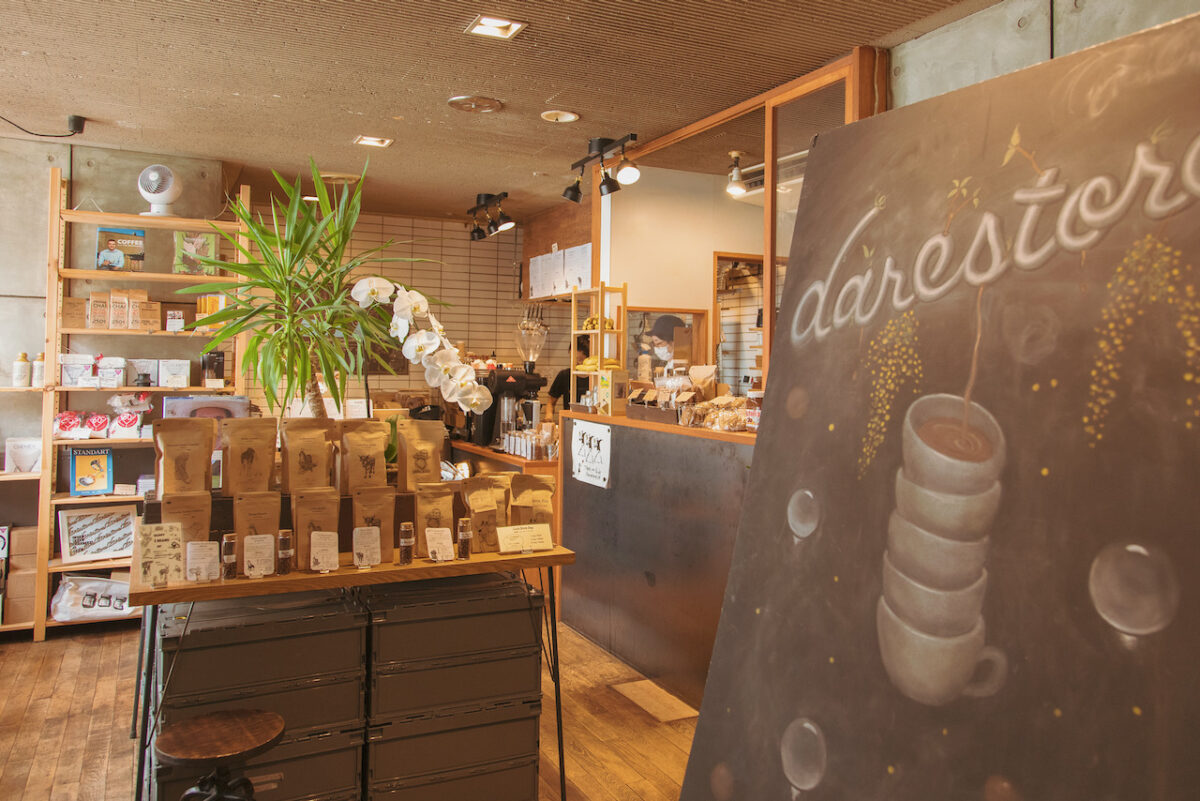
darestore is located in Sendai city in Miyagi prefecture in Tohoku region. darestore is a roastery cafe opened in 2017 by Mr. Yusuke Ishiyama who honed his roasting and brewing skills at a famous local cafe and Mr. Yoshio Terasawa who was trained in Melbourne, Australia. They are working to create a comfortable place through ‘colorful’ coffee, where each ingredient shows its own ‘color.’ We spoke with Mr. Yusuke Ishiyama who said, “The turning point for me was when I served coffee for evacuees of the 2011 Tohoku Earthquake and Tsunami.”
◆ Titles in the text are omitted.
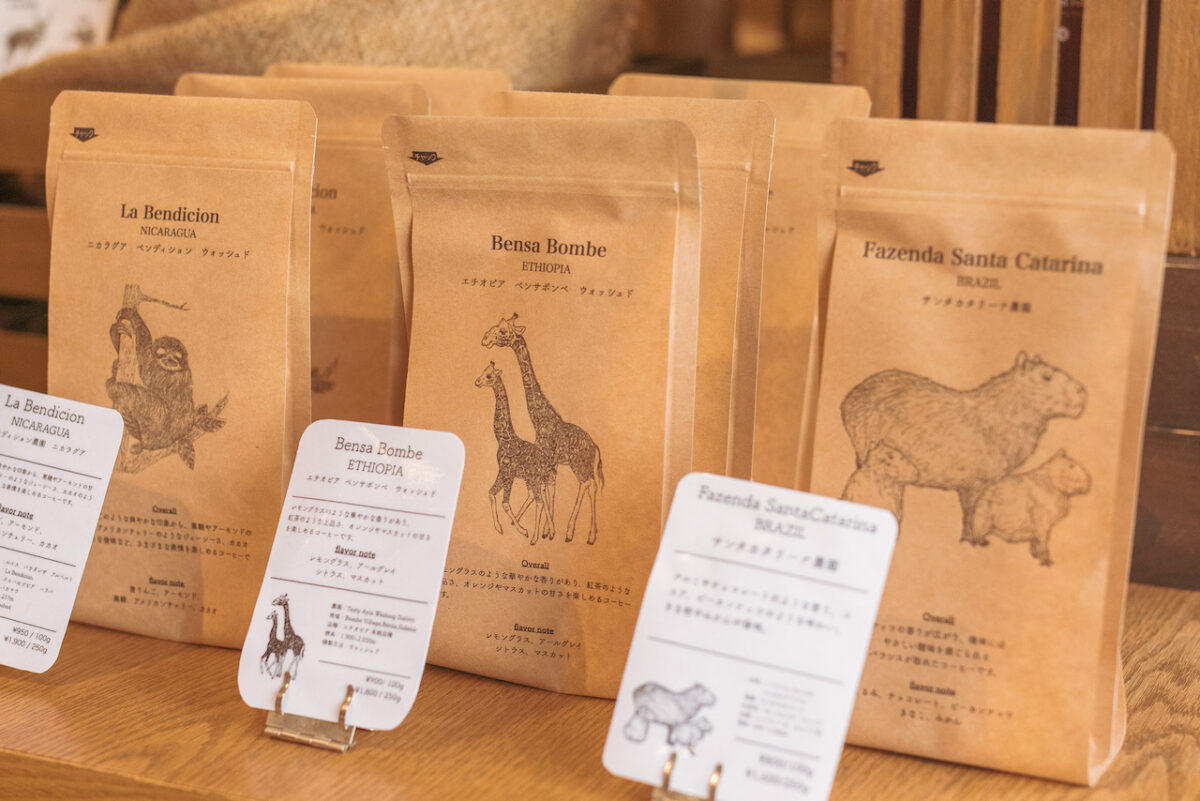
Creating a store catering to all age customers, from babies to the elderly.
The coffee packaging is eye-catching with illustrations that make us think of the types of animals drawn.
Ishiyama states, “For Brazilian beans, for example, a capybara is drawn, and for Ethiopian beans, a giraffe is drawn. Customers become interested in buying coffee beans by looking at the illustrations and tell us, ‘I want to buy coffee beans that have this illustration on it’ or ‘Do you have postcards for this illustration?’ The illustrations sometimes lead to conversations about the origins of the coffee beans.”
The natural and warm illustrations of animals show darestore’s philosophy. The philosophy is also evident by the fact the store provides chairs for children.
“I wanted to create a store that would attract a variety of customers from babies to the elderly. All of our staff love children. I feel a place where children are present gives us strength.”
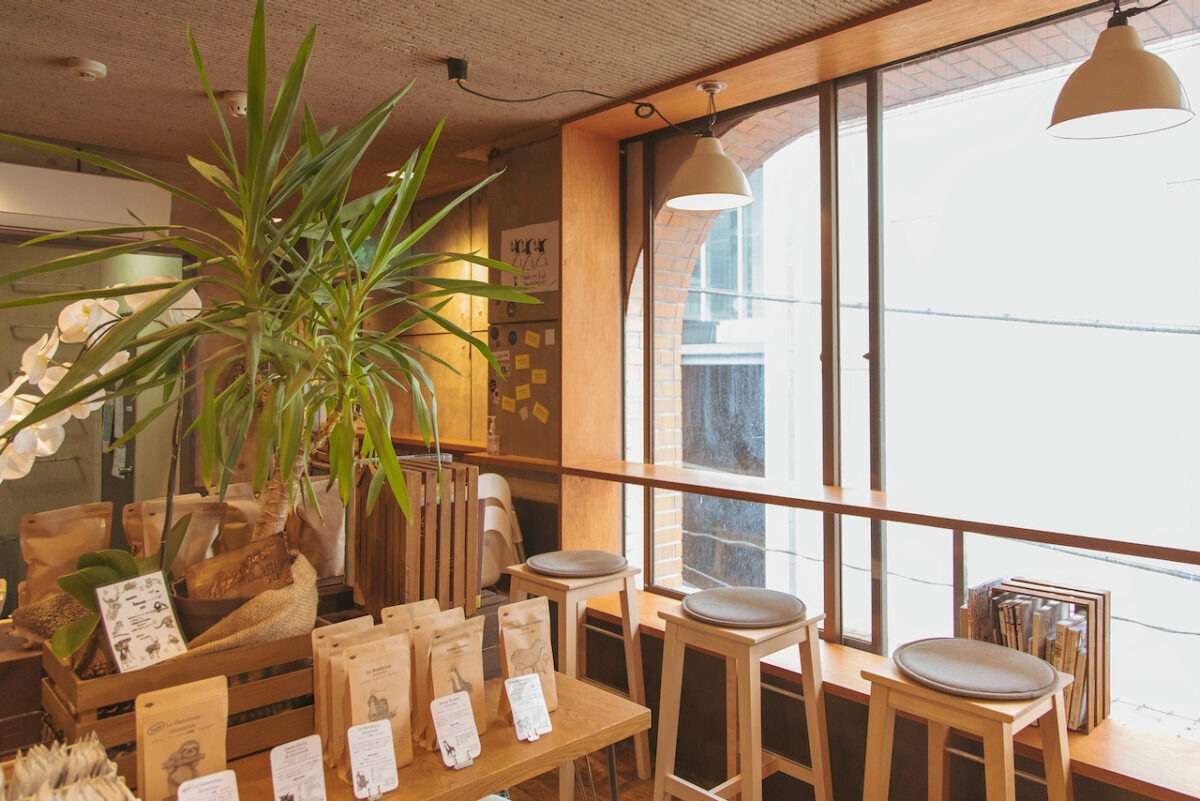
As of July 2021, the shop is open with seats at the counter only due to Covid. Prior to Covid, a large table was placed in the center of the shop where customers could congregate.
“It was like a big family dinner table in the old days. (laughs) It naturally brought people closer together and sometimes conversations would start between customers who happened to be sitting at the same table. Of course, you can spend a quiet time by yourself or come with a group. I wanted it to be a place where people could drop by on the spur of a moment, like a park where who is coming or how each person uses it isn’t determined ahead of time.”
“That’s why we were keeping the price range very reasonable at first, to be honest too reasonable, and all the staff members dressed casually. It’s not that I am trying to be casual but I say casual greetings like “Ohayo” (“Good morning” in Japanese) and “Konnichiwa” (“Hello” in Japanese) to customers rather than simply saying a business-like greeting of “Irrashai-mase” (“Welcome to our store” in Japanese).

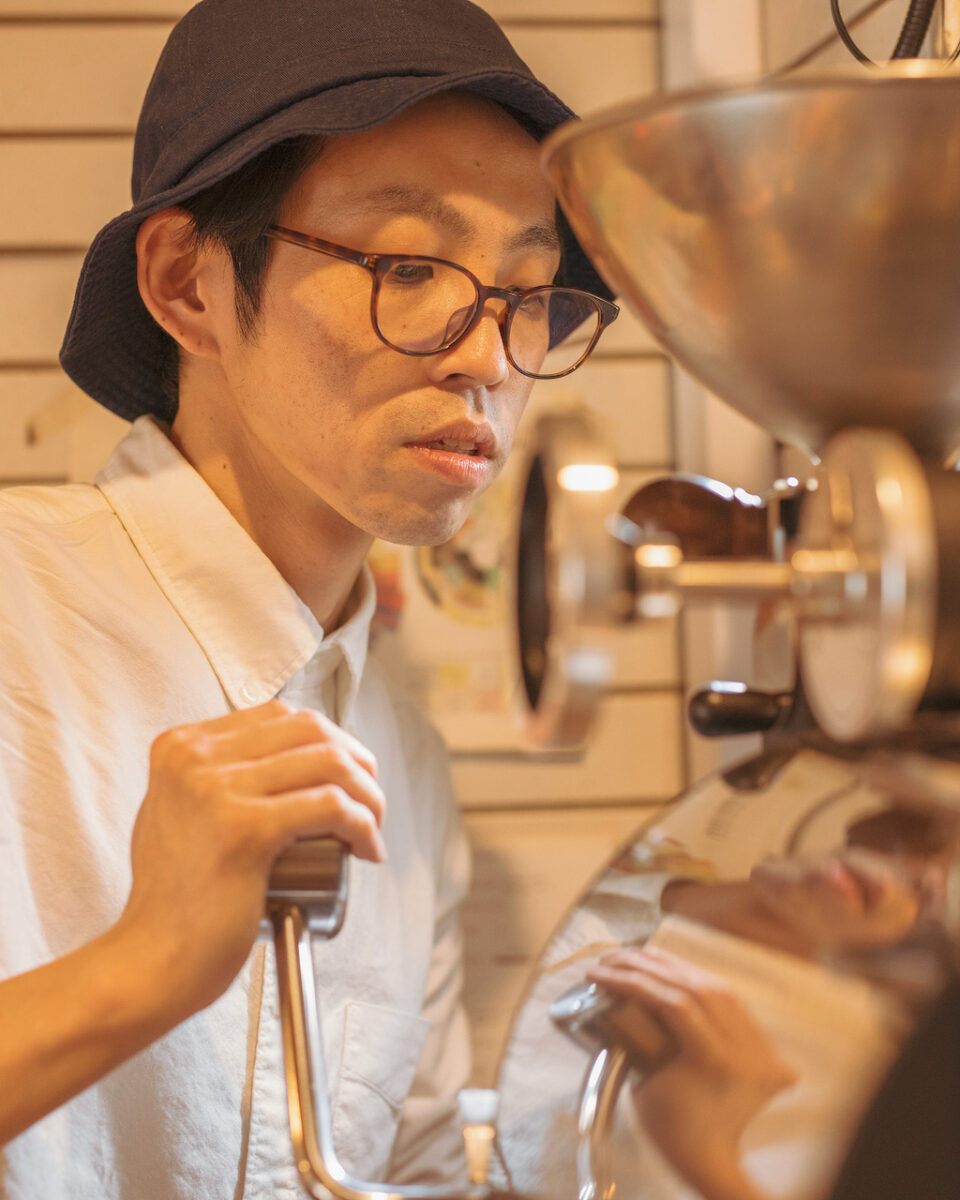
The power of coffee he felt at the evacuation center during the 2011 Tohoku Earthquake and Tsunami.
Before encountering coffee, Ishiyama was planning to work as a full-time employee at the general store where he worked part-time when he was a student.
Ishiyama states, “As graduation was approaching, the work started to be boring, but now when I recall that time, I think it was because even if a customer bought a purse or ring as a gift for someone, it was hard to see the person who would receive it being happy. On the other hand, in the food and beverage service industry, you can directly feel the reaction of customers as they would smile the moment they taste the food or drink or they may not smile when they taste it or drink. That’s why I was attracted to working in the food and beverage service industry rather than working in merchandise sales at the general store.”
The restaurant in Sendai where he worked for about two years was open mainly in the evening hours. A coffee shop came to his mind as an option that would allow him to experience the fun of the food and beverage service business while he could switch to a lifestyle with an early start for the day. Since it was close to his home, he started to work at Nelsoncoffee which was established in 1985. It is a roastery cafe that serves coffee at the store.
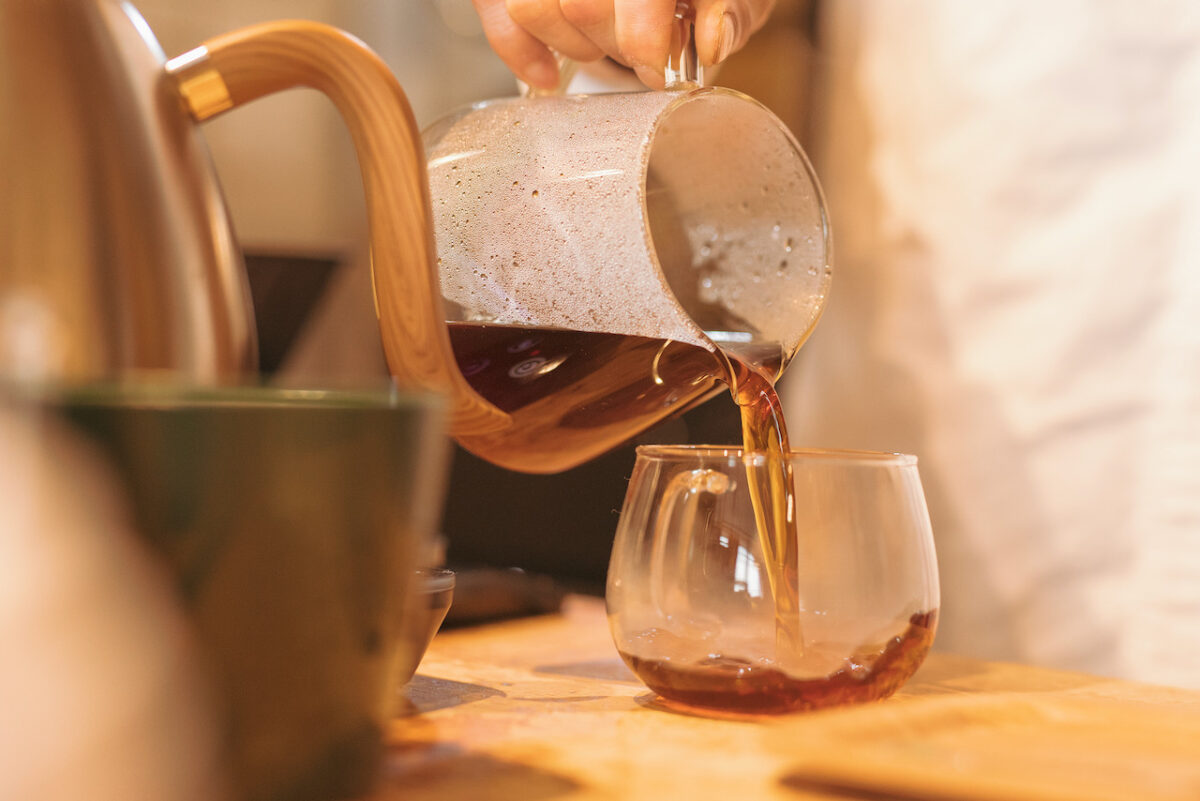
The turning point for Ishiyama came when the Tohoku Earthquake and Tsunami occurred in 2011 at the time he worked there. About two months after the 2011 Tohoku Earthquake and Tsunami around the end of May, he participated in serving coffee as a volunteer for evacuees at an evacuation center in Onagawa, an area severely affected by the earthquake. The experience of brewing coffee there completely changed his way of thinking about how to come to terms with coffee or how he should use coffee as means from now on.
Ishiyama said, “I thought coffee was an amazing drink. People who had coffee at the evacuation center shed tears in front of me and shared their memories of coffee with me by saying, ‘It reminds me of the taste of coffee I used to drink at my go-to cafe’ or ‘My favorite coffee shop was washed away.’ I was struck by the fact that they were in a situation where there would seem to be no room for them to think about coffee, yet they seemed so happy having a conversation on coffee and drinking coffee.”


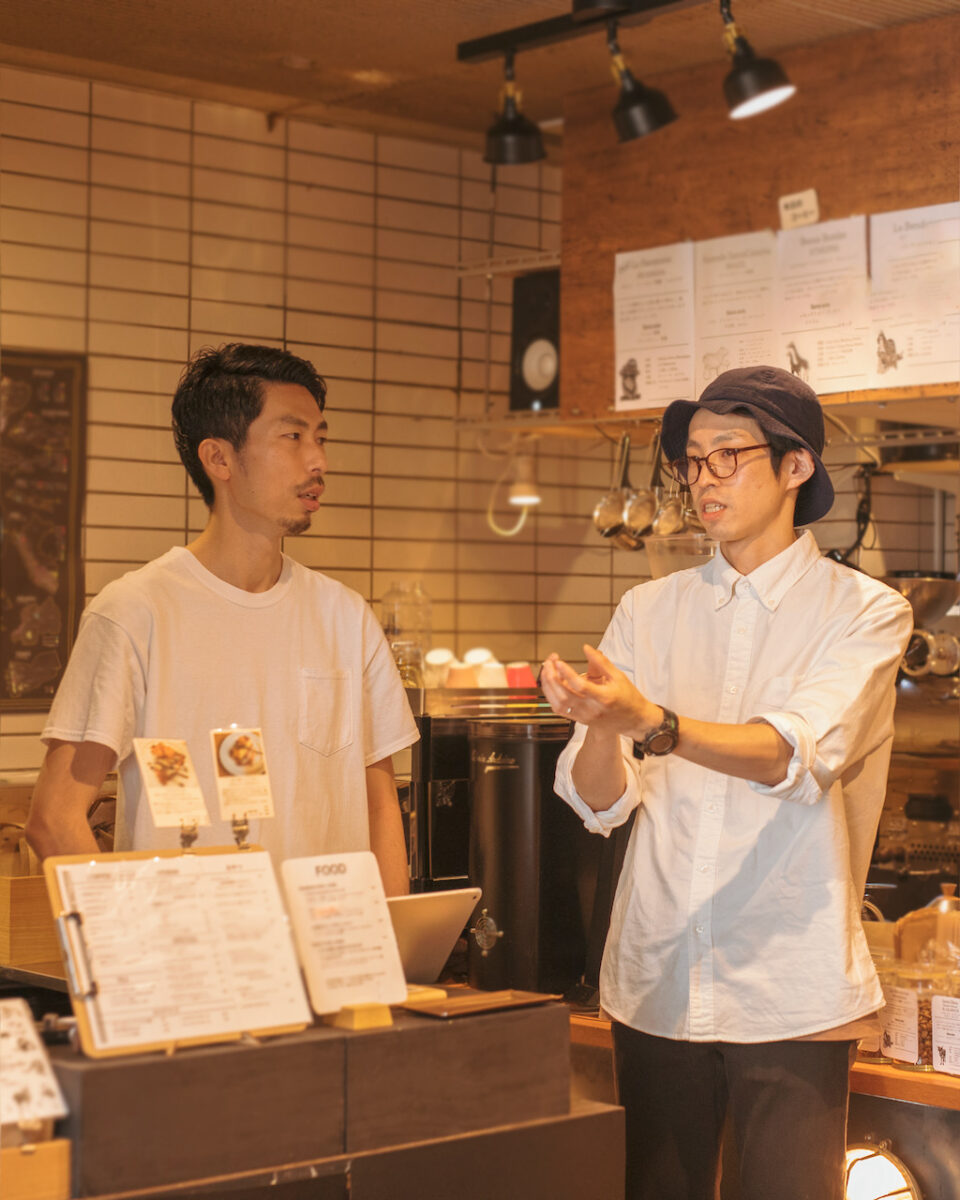
Being the way I am and making people happy.
He wanted to increase the number of people who become happy drinking coffee. To achieve it, he wanted to learn more about coffee. As Ishiyama’s passion for coffee grew, he began to interact with the local roasters’ community.
“There have always been relationships among roasters in Sendai. Kawaguchi san (Mr. Kawaguchi), an owner of La Casa del Caffè BAL MUSETTE which opened in 1996, is an important person in the local community of roasters. He holds cupping sessions where we taste coffee that he bought from coffee producers overseas. I appreciate that he doesn’t keep his knowledge to himself but instead shares it with us, young people.”
It was through this community that he met Terasawa, the co-founder of darestore. Before launching darestore, Terasawa gained experience as a barista in Melbourne where cafe culture is established well.
“I’ve been to Melbourne and I thought it was a wonderful city. Not only was the coffee delicious, but there are many genres of coffee shops, and each coffee shop was lively. Customers use the stores in an unpretentious way whether they are having a quick chat with the store staff or having a cup of coffee while reading the newspaper slowly. The image I had of Japanese cafes as a place where you have to drink coffee quietly was shattered there.”
When Terasawa asked him if he would like to open a coffee shop with him in Japan, Ishiyama left Nelsoncoffee where he had worked for ten years. They opened darestore in a room of a building that had once been a well-established coffee shop so that they could create a place where people could enjoy coffee in various ways.
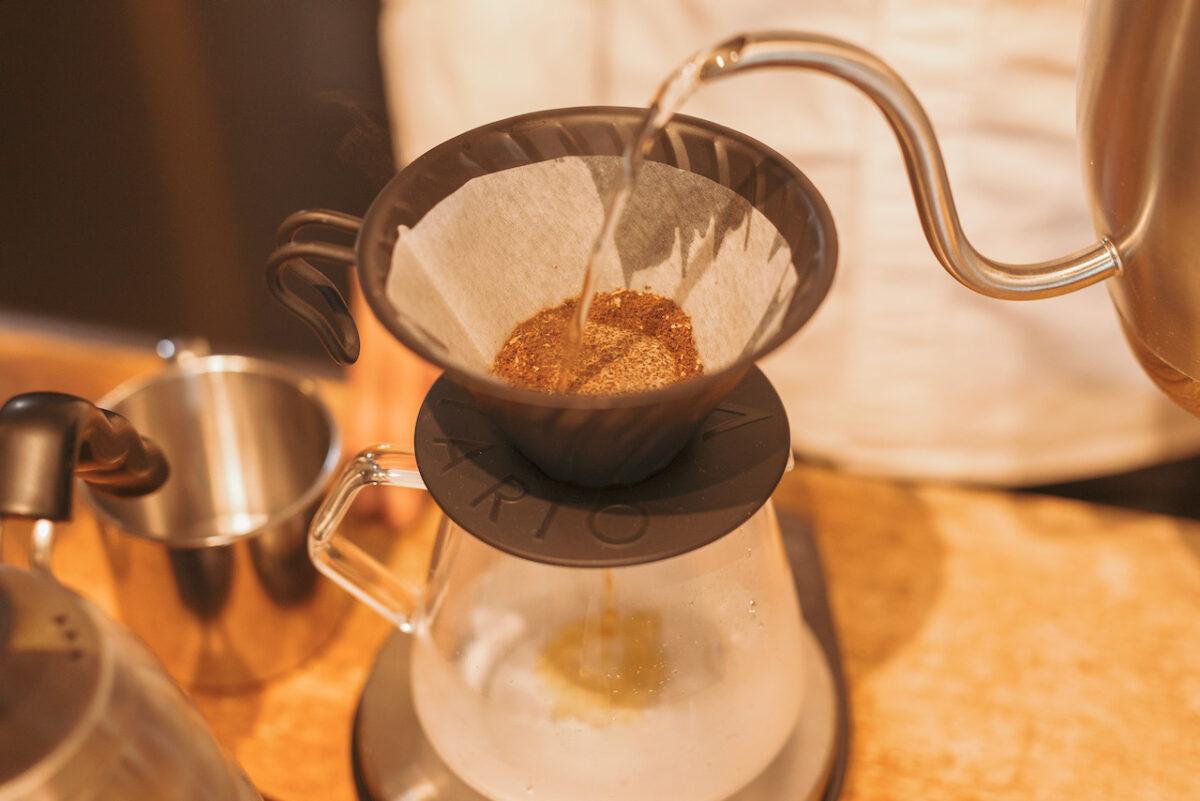
“Coffee is a very ‘colorful’ drink. I want to deliver the various ‘colors’ of coffee to my customers while keeping the sourness, sweetness, and aroma intact. I’m glad I’m doing this job when people tell me, ‘I’ve never had anything like this before’ or ‘I actually didn’t like coffee much but I can drink this kind of coffee.’ ”
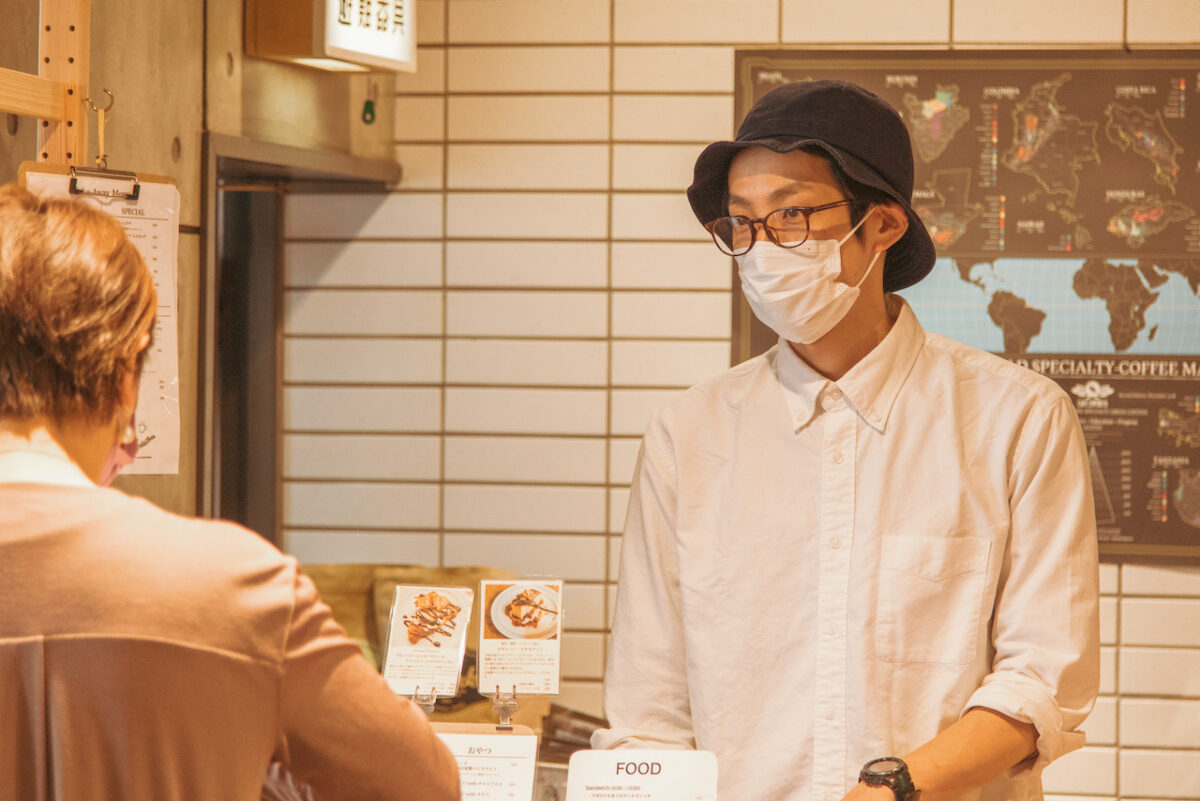
Ishiyama aims to become a guide on how to enjoy coffee, but he says that he wasn’t good at serving customers and interacting with them before. Whenever he got too busy, he remembered the advice of the store managers and owners of the restaurants and cafes that he previously worked in: ‘It would be easier if you serve customers as if you are interacting with your friends or family.’ This put his mind at ease.
“At the restaurant, I had acquired knowledge about wine and food, and I had a good understanding of the taste of the food, but I felt that I was overworking myself somewhere. There were times when I tried my best to overcome my weaknesses, but it didn’t make me feel comfortable and it made me feel tired. But now I am different. Now that I am dealing with things that I really want to recommend to customers, I feel like I am losing the feeling of doing formal customer service. I am becoming more natural being myself.”

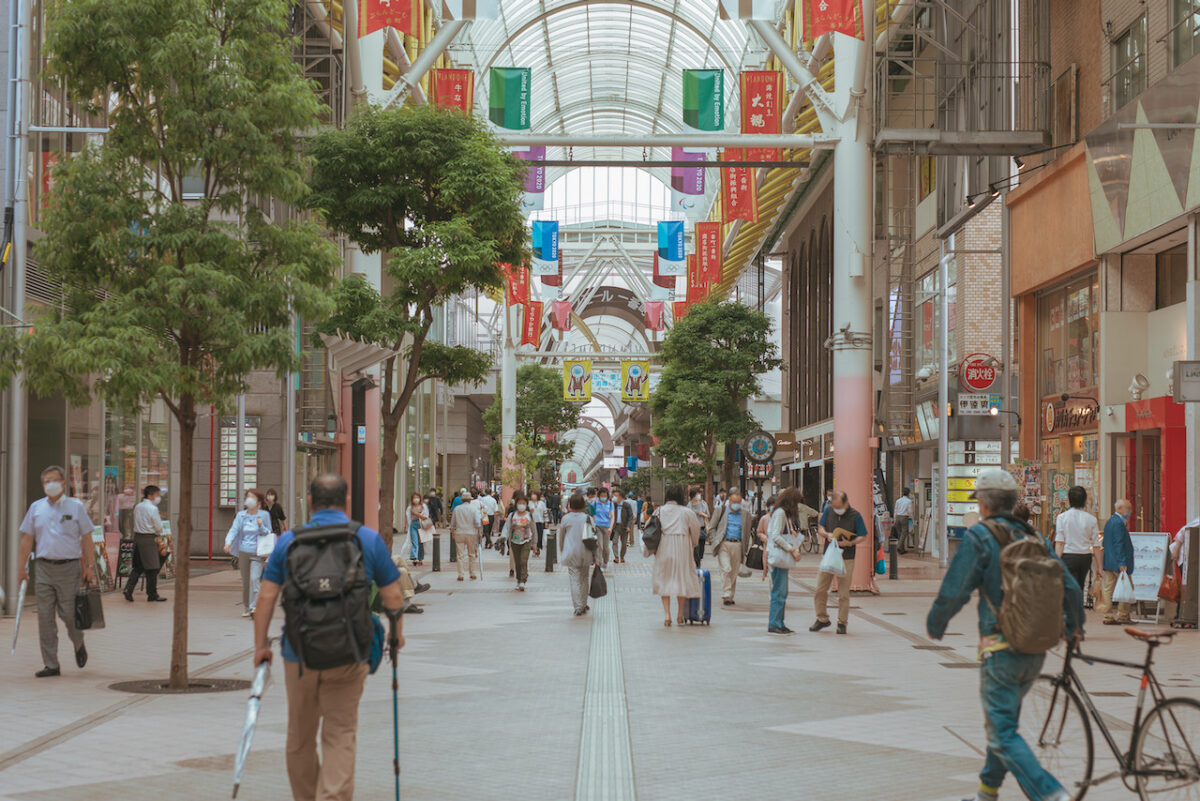
Bringing smiles to people’s faces.
Why did Ishiyama decide to open a roastery cafe in Sendai where he was born and grew up?
“Because I love my hometown. When I visited my sister who used to live in Tokyo, I had the impression that people in the city including my sister were in a hurry and that everyone looked tired. I don’t know, but maybe that was because I have a tendency to feel depressed and miserable when I see people looking tired or in pain.”
That was the reason Ishiyama chose Sendai to open his store and this is also why he feels frustrated with the current situation in Sendai.
Ishiyama says, “There are not many restaurants or cafes that allow customers to come with toddlers and children, and strollers are treated as a hindrance. I thought that Sendai was a laid-back and kind city to the people who would create a part of future Japan, but to my surprise, it hasn’t been. Both our coffee and the city of Sendai could be better. That’s why we do take-out so that mothers and fathers with children, who feel refused by other restaurants or cafes, don’t have to feel uncomfortable in our coffee shop and can easily stop by for a take-out. We want to be a place where people with children can stop by, even if that is for five to ten minutes.”
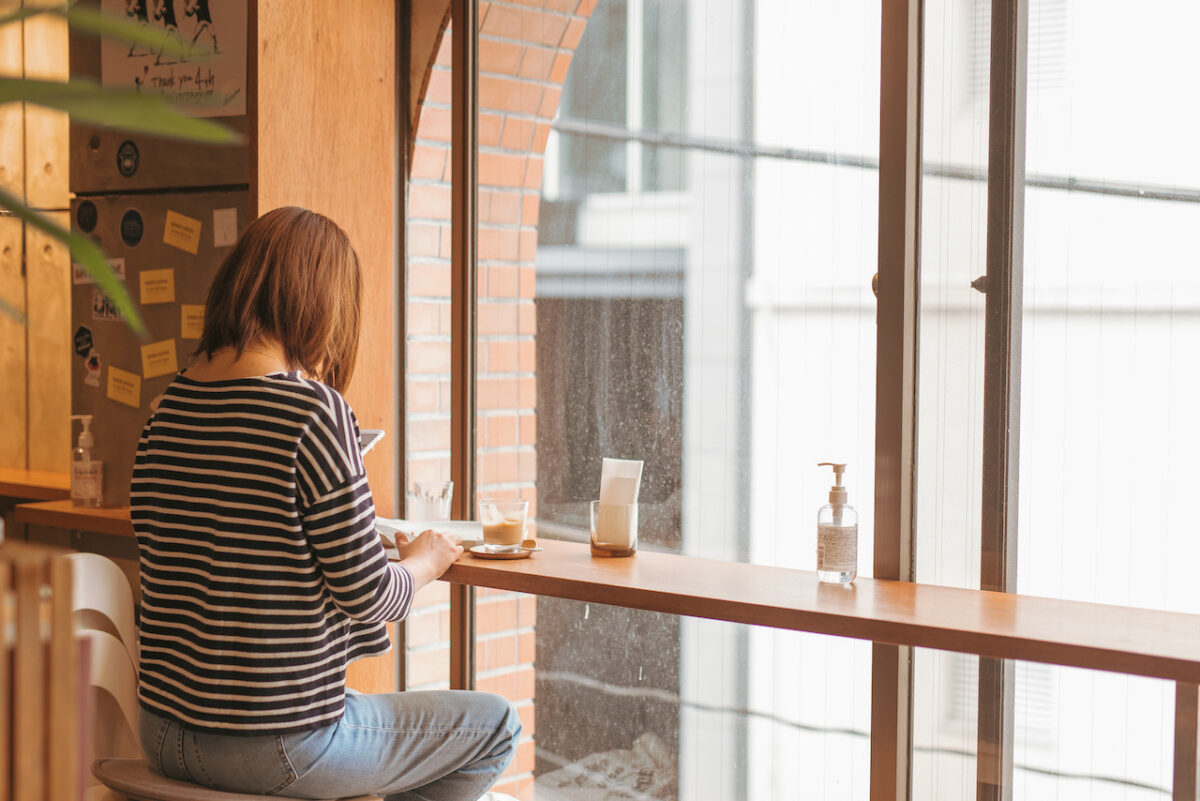
A park where people of all walks of life casually visit can be said to be a place where no one is rejected.
“I don’t choose customers. That’s not limited to children. I don’t mind if an old man lingers for a cup of coffee or a young lady orders only sweets. Sometimes I secretly wish that she would order coffee as well, but I hope that she will eventually order coffee at some point.”
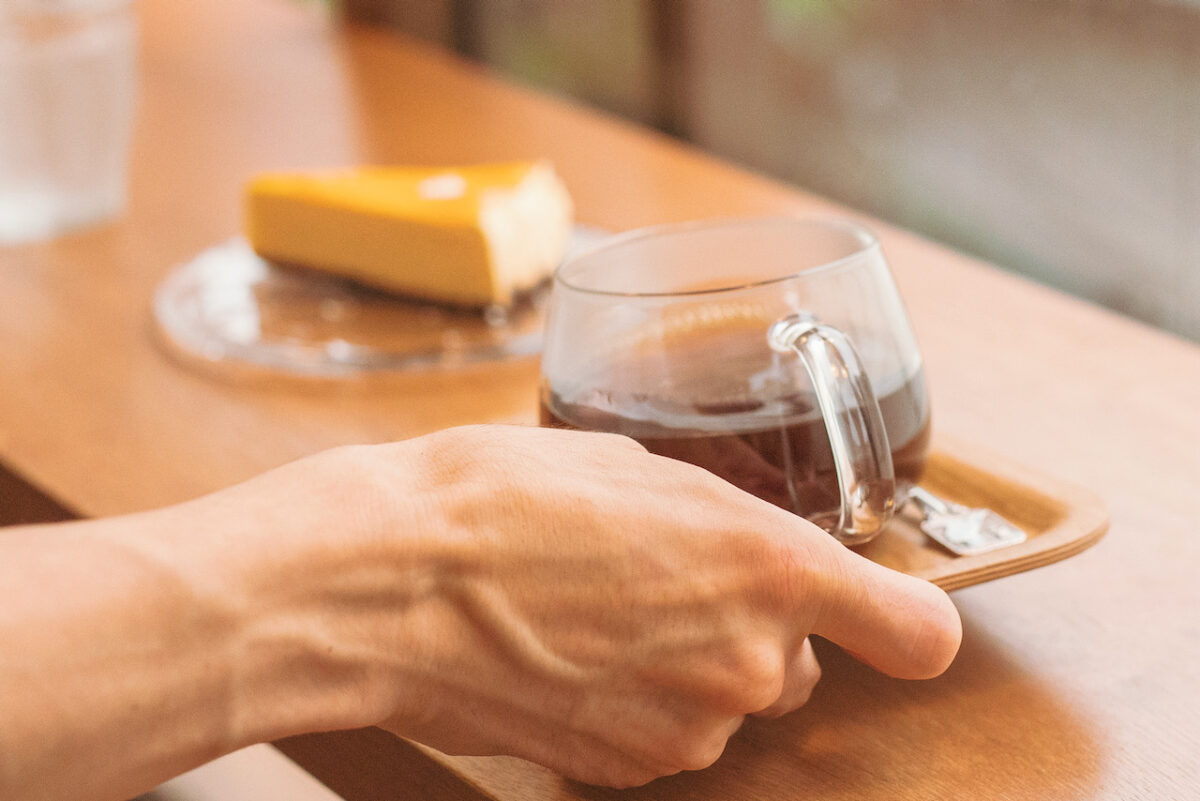
They named the cafe “darestore” to have two main meanings: “restore” which is etymology of ‘restaurant’ and “dare” which means to be brave enough to do something difficult.
Ishikawa hopes a cup of coffee will ease the fatigue of people and bring a smile to people’s faces. He hopes a cup of coffee will expand the world for the people who want to learn a new way to enjoy it. One smile leads to another. For Ishiyama, coffee may be the hope for making that happen.
Originally written in Japanese by Sachie Mizuno.
Edited in Japanese by Tatsuya Nakamichi.
MY FAVORITE COFFEE
“I like coffee made by someone else. My favorite coffee is the coffee my four-year-old daughter makes for me now and then. My daughter doesn’t drink coffee yet and she doesn’t know how to make coffee properly so she just mimics how I make it. It doesn’t actually taste that good, yet her effort makes me feel like the coffee is very delicious indeed.”
